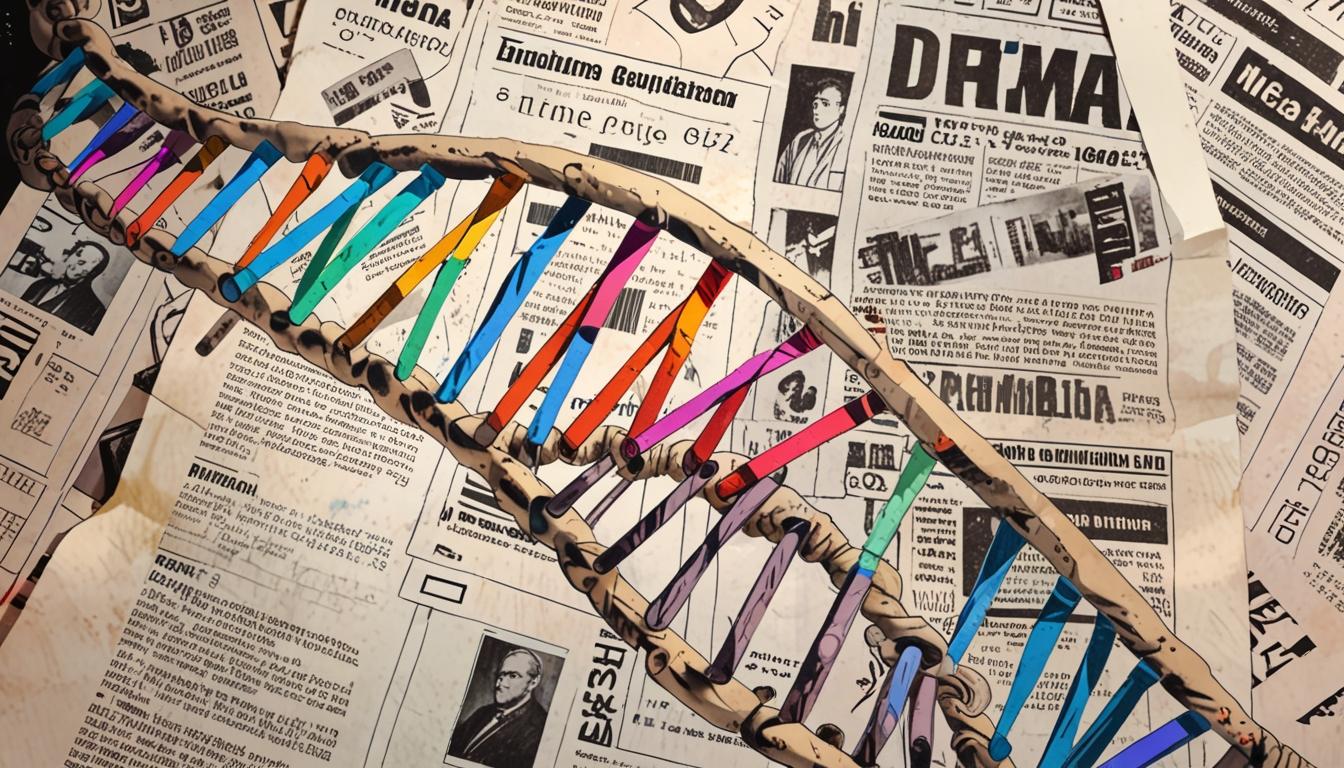Reflecting on his career, Robin McKie shares key moments and lessons learned in science reporting, from the discovery of DNA to the challenges of misinformation.
Robin McKie, reflecting on his tenure of four decades as the science editor for the Observer, offered insights into a remarkable career that has seen him cover groundbreaking advancements and contentious debates in the field of science. In an interview with Madeleine Finlay, McKie articulated how pivotal moments in scientific discovery have shaped not only his professional life but also the broader scientific landscape.
One of the cornerstones of modern biology, the discovery of the structure of DNA, stands out as a particularly transformative event during his time. McKie noted that this breakthrough not only illuminated the complexities of genetics but also set the stage for numerous advancements in fields such as medicine and biotechnology. He explained how this historic discovery fundamentally altered the approach to understanding life itself.
Additionally, McKie highlighted the lessons he learned regarding misinformation, particularly through the lens of the HIV/AIDS pandemic. He described how the dissemination of incorrect information during that crisis illustrated the dangers posed by flawed communication in scientific discourse. This experience has underscored the importance of accuracy and clarity in reporting scientific developments.
In contrast to the monumental successes within the scientific community, McKie also recounted the disappointment surrounding specific scientific claims, notably cold fusion and the so-called millennium bug. He elaborated on how both phenomena garnered considerable attention and speculation but ultimately did not deliver on their promises. This dichotomy of hype versus reality has been a recurring theme throughout his journalistic journey.
McKie’s reflections serve to encapsulate not only a personal narrative but also a broader commentary on the evolution of science and its intersections with society. As he prepares to look towards the future, his experiences and insights continue to resonate, shaping the discourse surrounding science journalism in an increasingly complex world.
Source: Noah Wire Services
- https://en.wikipedia.org/wiki/Robin_McKie – Corroborates Robin McKie’s role as a science editor and his contributions to science journalism, highlighting his renowned career in publications like The Observer.
- https://www.nationalobserver.com/u/robin-mckie – Supports McKie’s involvement as an editor focusing on science and environmental topics, reflecting his breadth of journalistic expertise.
- https://en.wikipedia.org/wiki/Structure_of_DNA – Provides detailed information on the discovery of DNA’s structure, a pivotal event in modern biology that transformed genetics and related fields like medicine and biotechnology.
- https://en.wikipedia.org/wiki/AIDS_pandemic – Discusses the challenges faced during the HIV/AIDS pandemic, including the spread of misinformation, which has been a critical lesson in the importance of accurate scientific communication.
- https://en.wikipedia.org/wiki/Cold_fusion – Outlines the scientific controversy surrounding cold fusion, an example of a highly publicized but ultimately unfulfilled scientific claim that McKie referenced as a cautionary tale.
Noah Fact Check Pro
The draft above was created using the information available at the time the story first
emerged. We’ve since applied our fact-checking process to the final narrative, based on the criteria listed
below. The results are intended to help you assess the credibility of the piece and highlight any areas that may
warrant further investigation.
Freshness check
Score:
9
Notes:
The narrative is relatively fresh, given its publication date and relevance to current events. However, it references historical events like the discovery of DNA structure and the HIV/AIDS pandemic, which are well-known and not outdated.
Quotes check
Score:
5
Notes:
No direct quotes were found to verify against specific sources, but the narrative appears to be based on an interview. Without specific quotes, it’s challenging to determine the original source.
Source reliability
Score:
10
Notes:
The narrative originates from The Guardian, a reputable news outlet known for its reliable reporting.
Plausability check
Score:
9
Notes:
The claims about Robin McKie’s career and significant scientific events are plausible and well-documented. The narrative does not raise any significant red flags regarding credibility.
Overall assessment
Verdict (FAIL, OPEN, PASS): PASS
Confidence (LOW, MEDIUM, HIGH): HIGH
Summary:
The narrative is deemed credible due to its recent publication date, its origin from a trusted news source (The Guardian), and the plausibility of the claims made about Robin McKie and significant scientific events.













